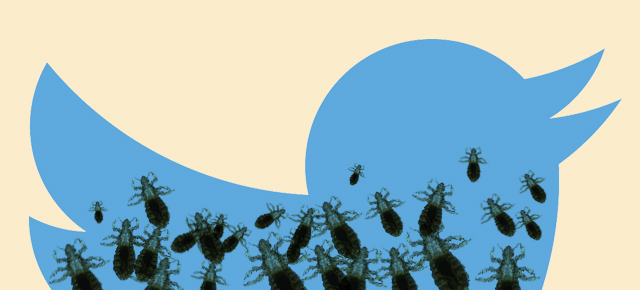Austin’s South-by-Southwest used to be a music festival, but now it’s an app happening. It’s where Twitter started, as SXSW organisers love to remind us; and this year’s app headliner is Meerkat, a live streaming app built for Twitter. At least, it used to be. And that’s where things get interesting — or broken, depending on your point of view.
Meerkat is part of the ever-growing family of apps that connect to the big three of social: Twitter, Facebook, and Google. Call them parasite apps.
Most of these apps just use the big three to handle logins — apps from Uber to Feedly ask you to login using Facebook instead of handling your password credentials themselves. But Meerkat was using Twitter’s social graph, which allowed Meerkaters (is that a thing, yet?) to find one another more easily. But then Twitter kneecapped Meerkat by cutting the app out of their social graph. Shortly thereafter, Twitter acquired Periscope, a startup that does basically the same thing as Meerkat.
So what’s the problem? First, this little Meerkat/Twitter kerfuffle is just one example of how much power Facebook and Twitter have when it comes to deciding which apps survive. Meerkat’s founder Ben Rubin says the Twitter cold shoulder is “just a speed bump,” but his response sounds like someone trying to put out a wild fire with just one bucket. It certainly wouldn’t be the first time something like this has happened (RIP TwitPic). With Periscope having most favoured nation status with Twitter, Meerkat’s chance of succeeding as an app is undermined from the get-go.
In a way, Twitter and Facebook are like feudal lords, and if you’re not playing along obediently within their tiny kingdoms, you can pretty much GTFO.
But there’s another problem, too. Parasite apps can become shackles, tying you to the big three of social, even when you want to quit them. A couple months ago, I tried to deactivate Facebook. Maybe it was baby picture fatigue, or the realisation that I hadn’t posted a Facebook status for like… two years. Either way I had finally decided enough.
I made it through the “Are You Sure You Want to Deactivate Your Account?” routine, including pictures of acquaintances I barely talk to saying they will miss me. (I’m surprised Sarah McLachlan didn’t start playing or something.) Then I clicked “deactivate.”
“I’m free!” I thought. Except I wasn’t. Because when I tried to log into Spotify, Instagram, and the zillion other services I’d very much like to keep using, I couldn’t anymore. Nope. Sorry. You don’t have a Facebook account. FUUUUUUU — .
Sure, I could go through every one of these apps and set up a new account, but yeah…I’m not going to do that, and I really shouldn’t have to. With the inconvenience of remembering tons of passwords slowly declining thanks to services like 1Password and the coming ubiquity of biometric security like fingerprint scanners (or even eye scanners), we could all collectively overcome our feudal overlords. But that just isn’t going to happen.
It’s a Facebook and Twitter app world. Parasites like Meerkat are subject to the whims of their host bodies — or are eventually fully consumed through acquisition. Of course, the ultimate losers are consumers, whose app choices are determined by Twitter’s whims — and who remain shackled to social accounts we don’t even want anymore.
